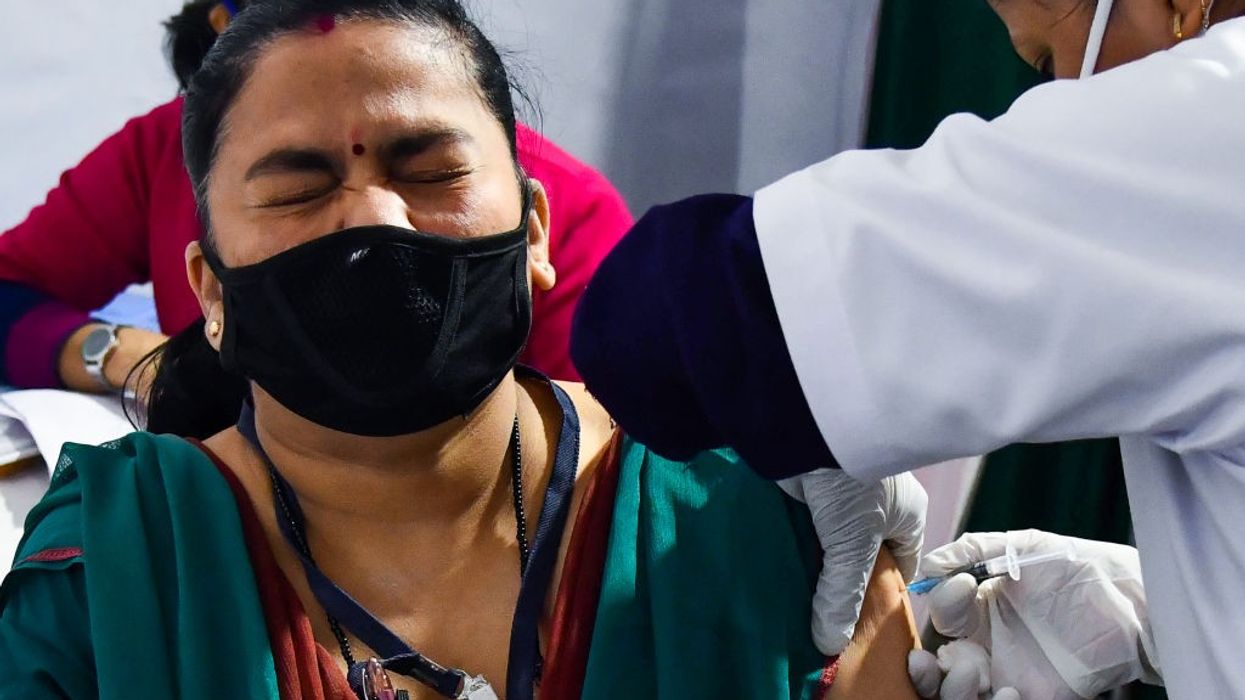Nineteen states and union territories in India have not reported any death due to COVID-19 in a span of 24 hours, while India's active cases stood at 146,907 accounting for 1.33 per cent of the total number of infections, the union health ministry said on Wednesday.
A total of 13,742 new cases have been reported in a span of 24 hours, whereas 14,037 recoveries were registered during the same period.
It has led to a net decline of 399 cases in the total active caseload, the ministry said.
Maharashtra reported maximum positive changes with an addition of 298 cases whereas Kerala has recorded maximum negative change with subtraction of 803 cases, the ministry stated.
In the past one week, 12 states have reported more than 100 average daily new cases.
These are Maharashtra, Kerala, Tamil Nadu, Karnataka, Punjab, Gujarat, Madhya Pradesh, Chhattisgarh, West Bengal, Telangana, Delhi and Haryana.
Kerala and Maharashtra reported more than 4,000 average daily new cases in the past week, the ministry said.
Nineteen states and UTs which have not reported any COVID-19 death in a span of 24 hours are Gujarat, Haryana, Rajasthan, Odisha, Jharkhand, Chandigarh, Assam, Lakshadweep, Himachal Pradesh, Ladakh, Manipur, Mizoram, Tripura, Meghalaya, Andaman and Nicobar Islands, Sikkim, Nagaland, Arunachal Pradesh, and Daman and Diu and Dadra and Nagar Haveli.
Till February 24 morning, the vaccination coverage in India was 12,165,598 through 254,356 sessions, according to a provisional report.
These include 6,498.300 healthcare workers (first dose), 1,398,400 healthcare workers (second dose) and 4,268,898 frontline workers (1st dose).
The second dose of COVID-19 vaccination started on February 13 for those beneficiaries who have completed 28 days after receipt of the 1st dose.
Vaccination of frontline workers (FLWs) started on February 2.
On Day 39 (February 23) of the vaccination drive, 420,046 vaccine doses were given.
Out of which, 279,823 beneficiaries were vaccinated across 9,479 sessions for first dose and 140,223 received second dose.
Out of total 12,165,598 vaccine doses, 10,767,198 have received the first dose and 1,398,400 received the second dose.
The ministry said 12 states and UTs have administered more than 75 per cent of the registered healthcare workers (HCWs).
These are Bihar, Tripura, Odisha, Gujarat, Chhattisgarh, Lakshadweep, Madhya Pradesh, Uttarakhand, Jharkhand, Himachal Pradesh, UP and Rajasthan.
Ten states and UTs have vaccinated more than 60 per cent of registered FLWs.
These are Daman and Diu and Dadra and Nagar Haveli, Rajasthan, Lakshadweep, Gujarat, Madhya Pradesh, Tripura, Odisha, Himachal Pradesh, Uttarakhand and Chhattisgarh.
India's cumulative recoveries surged to 10,726,702.
The gap between total recovered cases and the active cases is constantly rising and stands at 10,579,795 as on date.
The ministry said 86.26 per cent of the new recovered cases are observed to be concentrated in six states.
Maharashtra has reported the maximum number of single-day recoveries with 5,869 newly recovered cases, while 4,823 people recovered in Kerala in a span of 24 hours, followed by 453 in Tamil Nadu.
The ministry said 86.15 per cent of the new cases are from six states. Maharashtra continues to report the highest daily new cases at 6,218.




